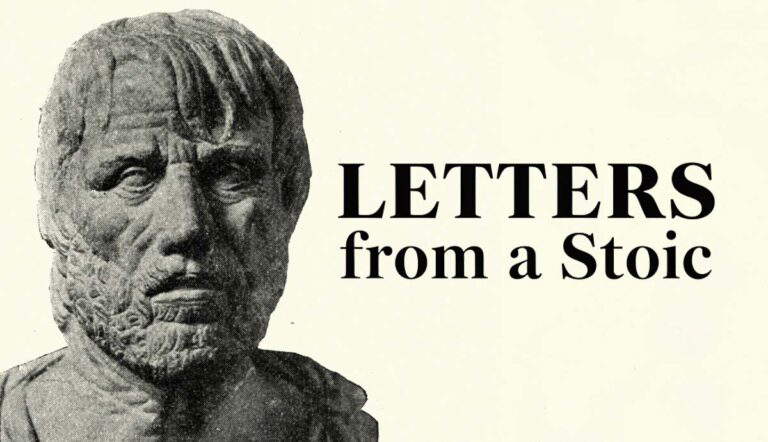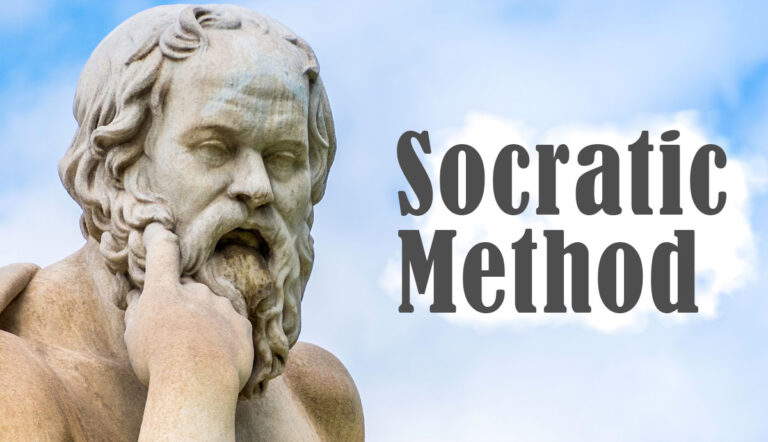
Tim Lake
Tim is a writer, musician, and educator based in Tokyo, Japan. He has a wide range of interests that intersect with philosophy in various ways—including music, creativity, education, ecology, art, history, and science—with an overarching focus on flourishing or eudaimonia. He enjoys teaching critical thinking and writing, and in his spare time keeps active running, hiking, and snowboarding in the Japanese mountains.
Articles by Tim Lake
 What Do Seneca’s “Letters From a Stoic” Teach Us About the Value of Philosophy?
What Do Seneca’s “Letters From a Stoic” Teach Us About the Value of Philosophy?Seneca was a Roman statesman, playwright, and Stoic philosopher. His Letters From A Stoic offer important lessons on the true value of philosophy.
 What Is the Socratic Method in Philosophy?
What Is the Socratic Method in Philosophy?Socrates was famous for his rigorous and relentless questioning to spur insight. This became known as the Socratic Method and remains an essential philosophical skill.
Socrates was famous for his rigorous and relentless questioning to spur insight. This became known as the Socratic Method and remains an essential philosophical skill.
 An In-depth Understanding on the Four Virtues of Stoicism
An In-depth Understanding on the Four Virtues of StoicismThe Four Virtues of Stoicism – wisdom, temperance, justice, courage – were an ethical system based on Socratic ideals in Imperial Rome.
The Four Virtues of Stoicism – wisdom, temperance, justice, courage – were an ethical system based on Socratic ideals in Imperial Rome.
 Ritual, Virtue, and Benevolence in the Philosophy of Confucius
Ritual, Virtue, and Benevolence in the Philosophy of ConfuciusThe teachings of the great Chinese philosopher Confucius offer a complete system of moral thought based on ritual, virtue and benevolence.
The teachings of the great Chinese philosopher Confucius offer a complete system of moral thought based on ritual, virtue and benevolence.
 The Life of Confucius: Stability in a Time of Change
The Life of Confucius: Stability in a Time of ChangeThe great Chinese philosopher Confucius looked to the past to help people live peacefully in the present. His ideas informed much of Chinese philosophy and culture for millennia.
The great Chinese philosopher Confucius looked to the past to help people live peacefully in the present. His ideas informed much of Chinese philosophy and culture for millennia.
 Aristotle’s Philosophy: Eudaimonia and Virtue Ethics
Aristotle’s Philosophy: Eudaimonia and Virtue EthicsAristotle’s ethical investigations remain one of the most well-known aspects of his philosophy; he looks at the virtues and how to apply them to living a flourishing life.
 Socrates: The Ancient Greek Philosopher & His Legacy
Socrates: The Ancient Greek Philosopher & His LegacyThe ancient Greek philosopher Socrates had a profound influence on Western philosophy with his Socratic method of critical thinking and moral philosophy.
The ancient Greek philosopher Socrates had a profound influence on Western philosophy with his Socratic method of critical thinking and moral philosophy.
 Epicurus’ Philosophy: The Pursuit of Pleasure as a Moral Imperative
Epicurus’ Philosophy: The Pursuit of Pleasure as a Moral ImperativeThe Greek philosopher Epicurus taught that pleasure was the highest good. He believed that by removing anxiety and enjoying life’s simple pleasures we could be happy.